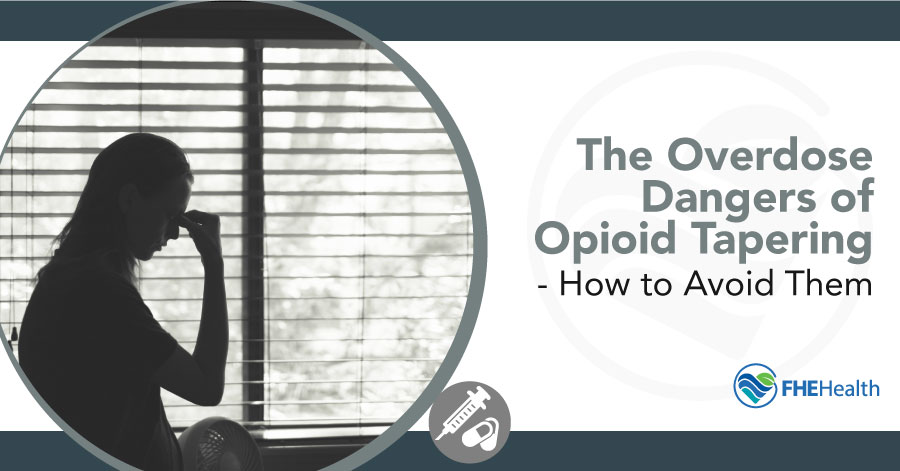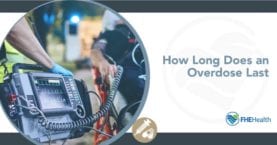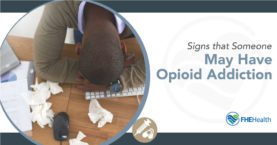
Despite efforts nationwide to subdue the ongoing opioid epidemic, many states are still fighting a losing battle. In fact, for the 12-month period ending in March 2021, overdose deaths from all drugs hit an all-time high at nearly 100,000, most of which were from opioids. Unfortunately, the unprecedented stress and mental health challenges of the pandemic have only increased rates of substance abuse among Americans from all walks of life.
For those who have come to depend on opiates as part of their daily life, quitting is often a priority. Whether this process happens on one’s own or with the help of medical professionals, tapering off opiate drugs is key to alleviating potentially severe withdrawal symptoms. It is therefore important to understand both how opioid tapering works and the potential dangers that make medical supervision the safer and more effective route. Treatment can begin quickly and discreetly, get started now Opioids are drugs derived from the poppy plant that include natural and synthetic varieties. Opioids of all kinds, from heroin to prescription pain medication, can affect the body and especially brain chemistry in significant ways. When ingested, opioids bind to the brain’s opioid receptors, (including mu, kappa, and delta receptors, all of which react in varying ways), in a similar manner to naturally occuring substances like endorphins. This is why taking a dose of opioids, like heroin, morphine, or hydrocodone, can result in feelings of excitement, euphoria, and pain relief. This may seem all well and good at the moment—after all, these substances are addictive in part because they’re pleasurable—but long-term use can interfere with the production of natural neurotransmitters like dopamine. When this happens, the body craves the kind of high only opioids can produce, leading to a desire to take increasingly larger doses. In the meantime, long-term use of opioids can damage the frontal lobe and interfere with impulse control circuits. Opioid treatment can often restore normal function, but those who have been using these drugs for many years may find themselves facing irreparable issues. Treatment can begin quickly and discretely, get started now Getting clean is the best way to overcome the dangers of drug addiction. However, quitting substances like heroin can be harder than it sounds. Due to the ways in which drugs like opioids affect the brain, walking away from an addiction requires a significant amount of willpower, as well as tolerance of significant side effects. It’s easy to say “just quit using,” but with opioids, going cold turkey poses certain risks and opioid tapering can lead to uncomfortable and potentially dangerous withdrawal symptoms: Withdrawal is not a fast process, either. It takes most recovering users weeks to overcome the worst side effects, and some may experience lingering symptoms for months or even years. Due to the prolonged discomfort and strong cravings, many people trying to quit go straight back to using within days or weeks. That can feed the assumption that trying to quit is futile. Ready to start? More questions about treatment? Tapering is an alternative to going cold turkey. Instead of ending your use all at once, you take progressively smaller doses of a drug to reduce tolerance and eventually wean off of the drug entirely. In a controlled taper, intake will be decreased in a gradual way over the course of days or weeks, depending on usage history and the extent of addiction. Many individuals with substance use disorders attempt tapering on their own. This can be effective in some cases, particularly for those who are starting from a low tolerance, but there are inherent risks in this process. This is most notable when doses are not controlled or monitored. When individuals handle their own opioid tapering, any reduction in dosing can be guesswork, and the only resource on hand is sheer willpower. Users have to make their own treatment plan and are the only ones to enforce it. This means that “falling off the wagon,” so to speak, is as easy as a split-second decision to take a larger dose or more frequent doses. When coupled with the onset of withdrawal, it’s very common for users to go back to standard dosages within days, if not hours. At the beginning of the opioid tapering process, this may not necessarily be dangerous, but for those who have managed to taper significantly, returning to pre-tapering doses can be potentially harmful or even deadly. When tolerance drops, it’s easy to overestimate what is needed to get high, leading to overdose. Tragically, opioid overdose is often fatal, particularly when no one is around to call for help or administer Narcan. We offer 100% confidential and individualized treatment When dealing with opioid abuse, intervention from a trusted detox and treatment center can be the difference between success and failure. In this case, tapering is overseen by doctors and nurses specializing in addiction medicine. These health care professionals can administer a tapering dose, monitor side effects, and provide medication to minimize discomfort, like sleep medication to combat insomnia or anti-anxiety drugs to calm paranoia. This can ensure opioid tapering is going according to plan and prevent those in recovery from relapsing or taking doses larger than would be safe. Those experienced in addiction medicine know how to guide this process as safely and comfortably as possible, resulting in much higher success rates with as few complications as possible. In addition, rehabilitation centers couple physical treatments with mental health support, putting those in recovery in the best possible position for long-term sobriety. Getting help is almost always the best way to ensure recovery from addiction—for opioids as well as other substances. At FHE Health, we can provide a safe, secure environment for detox and rehabilitation, including proper measures to reduce harm when breaking a habit. Contact us today to learn more about our drug and alcohol treatment programs or to inquire about an opioid tapering plan. Treatment can begin quickly and discretely, get started now Kristina Robb-Dover is a content manager and writer with extensive editing and writing experience... read more The FHE Health team is committed to providing accurate information that adheres to the highest standards of writing. If one of our articles is marked with a ‘reviewed for accuracy and expertise’ badge, it indicates that one or more members of our team of doctors and clinicians have reviewed the article further to ensure accuracy. This is part of our ongoing commitment to ensure FHE Health is trusted as a leader in mental health and addiction care. If there are any concerns about content we have published, please reach out to us at marketing@fhehealth.com.
Need Help?
What Are The Effects of Opioids?
Start Treatment Now
Why Can Quitting Be Dangerous?
Begin your recovery today
What Is Tapering?
More Questions about Treatment?
Why is Professional Oversight Important When Tapering Off Opiates?
Start Treatment Now
![]()
About Kristina Robb-Dover
Footer
Functional
Always active
Preferences
Statistics
Marketing









